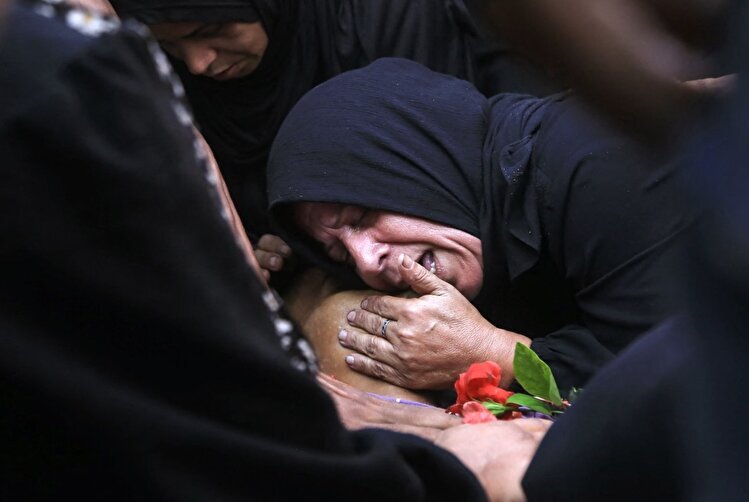The Moral Decline of Modern Man from Gaza to Kiev
TEHRAN (Defapress) - Last year, armed conflicts worldwide reached a peak, with 61 foreign wars and civil strife in 36 countries. This marks a new record for the number of wars since 1946, and this year things are set to get even worse.

The hopelessness of achieving global peace is a pervasive reality. While talk of a ceasefire in Gaza and the continuation of genocide have become a tedious and repetitive cycle over the past 21 months, the war in Ukraine is entering its fourth year, and despite Donald Trump’s 50-day deadline, there is no prospect of an end. On the other hand, the Syrian crisis flared up again immediately after the 12-day US-Israeli invasion of Iran. Meanwhile, the horror of the Sudanese people has not subsided for a moment.
It should be noted that the quality and depth of war crimes in different parts of the world also represent a new norm. The killing of civilians, the abduction of children, the use of starvation and displacement as weapons of war, sexual violence, and torture of all kinds have become almost commonplace. The killing of Palestinian children waiting in line for water was shocking to the world. But the most shocking reality is the normalization of these war crimes.
Surely everyone agrees that the killing and slaughter of innocents is morally indefensible. So why does war and slaughter continue despite this moral agreement? This is the question that has occupied the minds of aid workers, religious preachers, parliamentarians, grieving parents, and artists at the Glastonbury Festival in Rafah, Kiev, Darfur, Tehran, and Sweida. Why do we kill, and why are we killed?
Moral relativism must be cursed. The fact is that we do not all agree with each other. What is morally indefensible to one group is relatively permissible or justifiable to another. This has unfortunately been true throughout human history. Yet our fragmented world today seems more morally and spiritually bankrupt than ever, for there is no fixed and permanent moral framework.
The collapse of the rules-based international order after World War II is perfectly in line with this moral crisis. Without accepted moral principles, it becomes very difficult to resolve disputes peacefully, both domestically and internationally. There is no objective standard by which one view is right and another is wrong; therefore, the challenging debates are endless and continue with ever-increasing levels of anger.
And no one better illustrates the moral confusion and relativism of our time than Donald Trump, an opportunist, vulgar, and abusive figure. While he, with Netanyahu’s complicity, bombed Iran and killed countless civilians, he believed he deserved the Nobel Peace Prize. From Trump’s perspective and within his moral framework, the invasion of Iran was justified because it established a peace that he himself had destroyed!
In a world accustomed to war, the Alfred Nobel Peace Prize has lost its glory and seems purely political. Barack Obama received the prize in 2009 without having done anything in favor of world peace and security. Worse still, Trump has been nominated for the Nobel Peace Prize by Benjamin Netanyahu as the number one enemy of morality and peace in the world. In that case, perhaps it would be better to change the name of the Nobel Peace Prize.
It seems that for many people in the world, morality is still an insignificant, negotiable word, a personal and non-binding issue. In the Jeffrey Epstein affair, many Americans turned a blind eye to Donald Trump’s moral deviations and showed that their social and political identity prevails over human conscience. Just as a large part of the Russian people suffer from a chronic moral paradox when contemplating Vladimir Putin’s destruction of Ukraine, preferring to believe the myths of the state media, when the time comes, Russians may, like the Germans in 1945, claim ignorance, because immorality is always justified by lying.
Israel’s refusal to make peace in Gaza carries a high moral cost. The regime’s minimal credibility has been shattered, and its prime minister is wanted for war crimes. Yet how can Israeli citizens be persuaded not to support the genocide of 58,000 innocent people in Gaza?
The moral bankruptcy of the modern world and the retreat of human society to relative and personalized values a harsh but correctable reality. The moral legacy of human civilization must be respected and strengthened. Ending major conflicts and alleviating the suffering of millions of people is a moral imperative and requires the collective action of all stakeholders.
